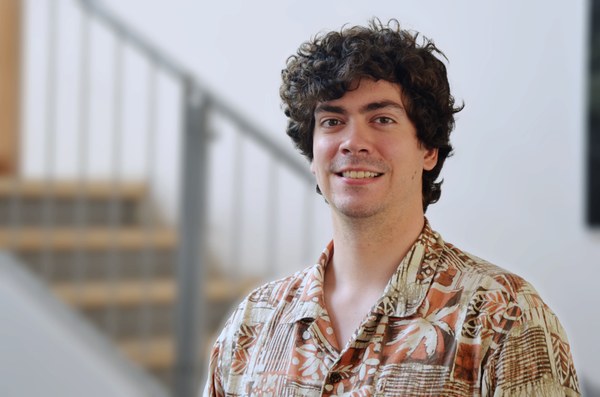Giovanni Petrucci (PhD)

Office: IPCL, Seibersdorf
Justus Liebig University Giessen
Institute for Insect Biotechnology
Department of Insect Biotechnology in Plant Protection
Winchester Str. 2
35394 Gießen
Curriculum vitae
|
|
|
|
06/2023 - to date
|
Ph.D. student at the Department for Insect Biotechnology in Plant Protection, Justus-Liebig-University Giessen, Germany. Duty Station at the International Atomic Energy Agency (IAEA), Seibersdorf, Austria from 01/24.
|
|
06/2022-06/2023
|
Internship at the International Atomic Energy Agency (IAEA) in the Insect Pest Control Laboratory.
|
|
09/2019 - 08/2021
|
MSc in Evolutionary Biology under the Erasmus Mundus Master programme in Evolutionary Biology (MEME). Awarded with a double master’s degree from the University of Groningen and the University of Montpellier. First master thesis: “Artificial selection for increased protandry in the common housefly Musca domestica”, conducted at the University of Groningen. Second master thesis “Assessing Spodopetera exigua iflavirus vertical transmission using RT-PCR and FISH” conducted as an external student at the Wageningen University and Research (WUR). |
|
09/2015 - 07/2018
|
BSc in Biological Sciences at the University of Turin. Graduated with thesis titled “Theory and applications of DNA barcoding”.
|
PhD Project
My PhD project is part of the EU funded Horizon project “REACT”. Objective of my doctoral research is to develop genetic sexing strains for SIT (sterile insect technique) applications in the invasive fruit fly species Bactrocera dorsalis and Bactrocera zonata employing CRISPR/Cas9 mediated genome editing.
Professional experiences
From June 2022 until June 2023, I worked at the International Atomic Energy Agency in the Insect Pest Control Laboratory in Seibersdorf, Austria. During this period, I worked on viruses infecting tsetse flies, studying how these might affect flies mass reared for SIT.
As part of my first master thesis I worked at the University of Groningen on an artificial selection experiment on the common housefly Musca domestica. Objective of the experiment was to select for a strain that displayed increased protandry that could be used in mass rearing to facilitate sex separation of flies.
For my second master thesis, I worked at the Wageningen University and Research in the Insect virus group in the Department of Pant Sciences. I studied two iflaviruses in the pest beet armyworm Spodoptera exigua, focusing on how these infect the moths at different life stages and visualizing the viruses via Fluorescent In Situ Hybridization (FISH).
Publications
Zilio, G., Nørgaard, L.S., Petrucci, G., Zeballos, N., Gougat-Barbera, C., Fronhofer, E.A., et al. (2021). Parasitism and host dispersal plasticity in an aquatic model system. J. Evol. Biol. 34: 1316–1325.
